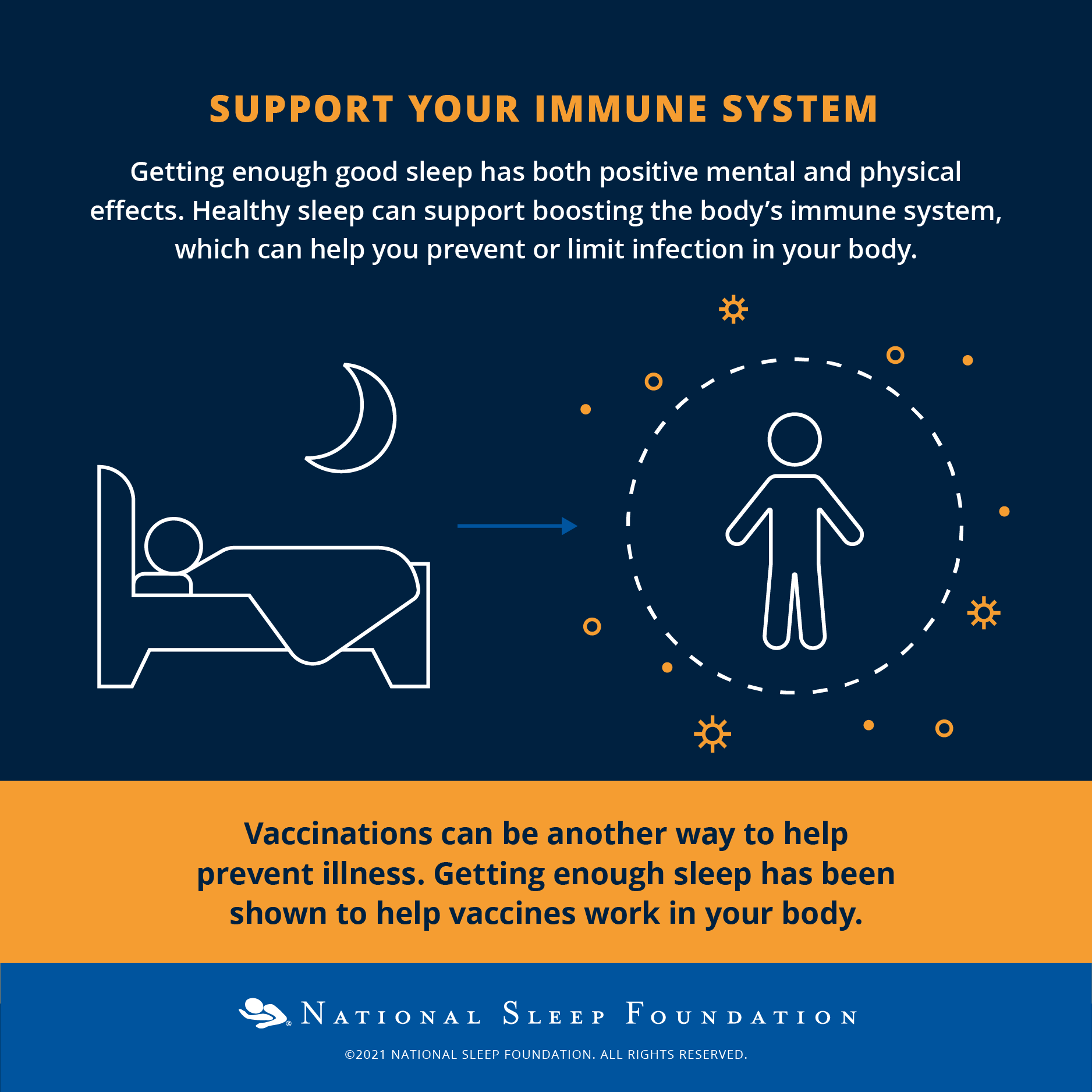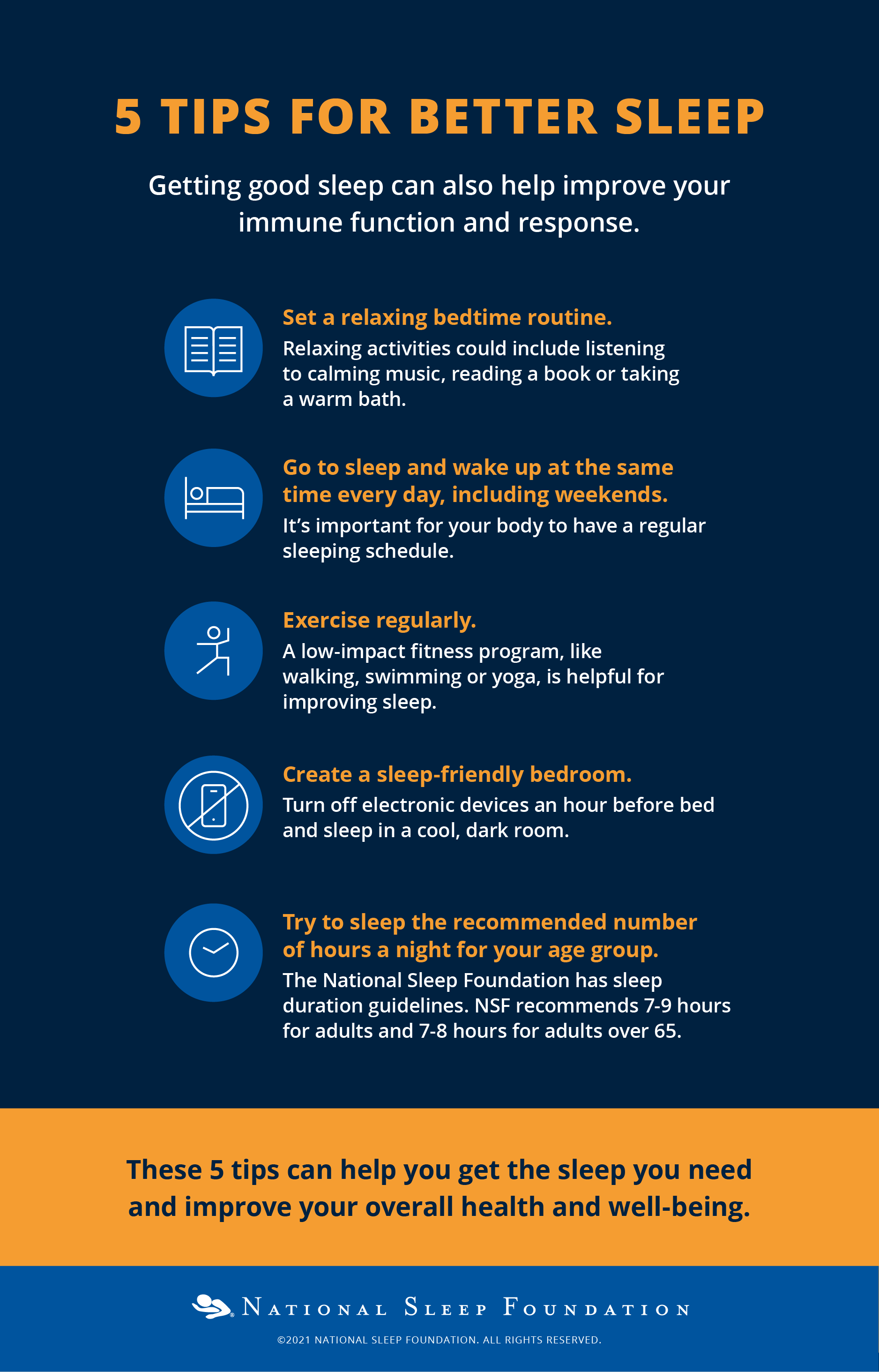Sleep, Immune Health, and Vaccination
Sleep is crucial for your overall health.
One key benefit of getting enough good sleep is strengthening your immune system to help you prevent or limit infection in your body. Healthy sleep can support boosting the body’s immune defense and can even help you from getting sick as often.
Sleep not only increases your immune system function, it also has been shown to play a role in improving antibody responses to vaccinations. This means getting enough sleep before and after you are vaccinated can help vaccines work in your body. This can be especially important as younger people and children receive vaccinations.

Keep these sleep tips in mind to help you get the sleep you need, especially if you are planning to be vaccinated in the near future.

- Try to sleep the recommended number of hours a night for your age group. The National Sleep Foundation has sleep duration guidelines. NSF recommends 9-11 hours for school-age children, 8-10 hours for teenagers, 7-9 hours for adults and 7-8 hours for adults over 65.
- Go to sleep and wake up at the same time every day, including weekends. It’s important for your body to have a regular sleeping schedule.
- Set a relaxing bedtime routine, such as listening to calming music, reading a book or taking a warm bath.
- Create a sleep-friendly bedroom. Turn off electronic devices an hour before bed and sleep in a cool, dark room.
- Exercise regularly. A low-impact fitness program, like walking, swimming or yoga, is helpful for improving sleep.
Make sleep a priority in your life as part of your overall health and well-being, including when you take steps to help protect yourself from infection and illness.